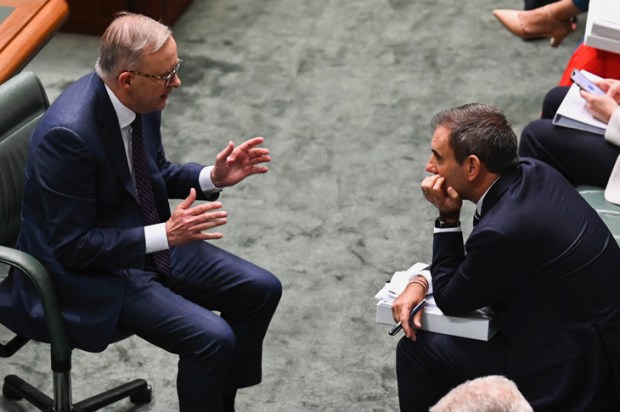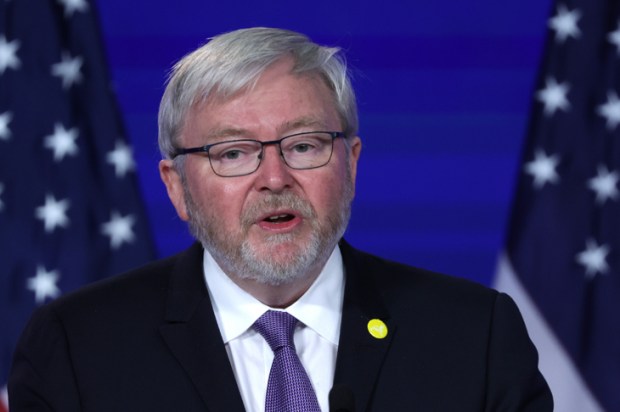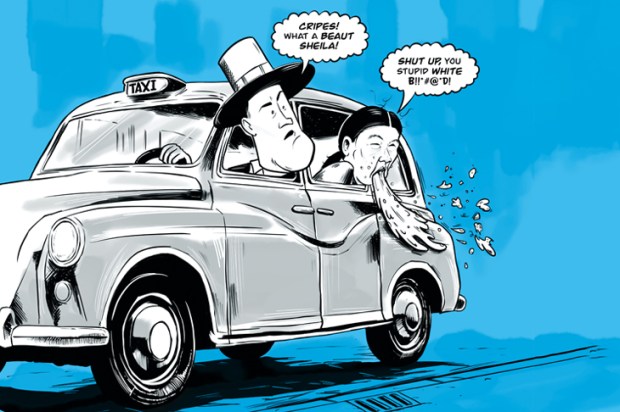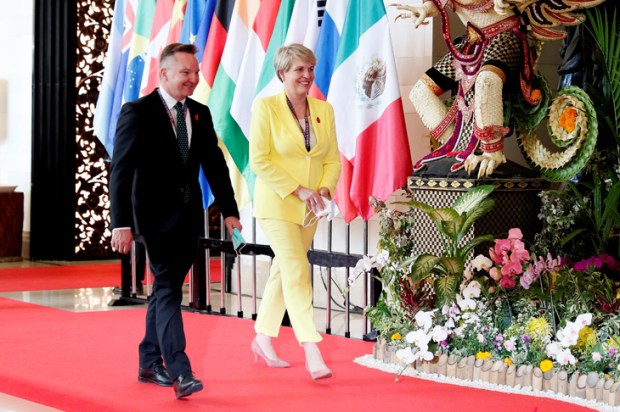Thirty years ago, Paul Keating did a great service by launching a cultural shift from retirement almost entirely dependent on the age pension to self-funded retirement with universal access to superannuation. For most of us, that means superannuation benefits on retirement based on the amount we have been able to accumulate in our accounts. It’s up to us to make our payouts go as far as possible.
Mr Keating, and his sainted successor Peter Costello, realised in return that taxation of retirement incomes must be kept as moderate as possible. They knew the more in a retiree’s pocket, especially when returns on invested super are low (like now), calls on the public purse are kept to a minimum.
Retirees can’t plan financially-secure futures if the goalposts keep moving.Yet that’s what Malcolm Turnbull, Scott Morrison and Kelly O’Dwyer forgot in their brazen pre-election raid on the super piggy bank.
The Spectator Australia welcomes and applauds their recent back down on retrospectivity and making changes to non-concessional taxation caps less punitive. But, like an errant spouse caught with a boozy floosy, the Turnbull government will never again be entirely trusted by mum and dad supporters when it comes to respecting their nest eggs. This ‘what’s yours is mine’ attitude in the political class is galling enough. It is made worse, however, by the realisation that those MPs and faceless public servants who are shamelessly raiding our super are themselves far better off than we poor saps in common-or-garden schemes. The most egregious example was one where long serving politicians got 75 per cent of their highest salary indexed according to movements in parliamentarian salaries and accessible at any age (for those who joined before 2001). Even the more mainstream parliamentary super scheme John Howard introduced in 2005 is far more lavish than what’s available for we plebs, especially when added to the perks MPs enjoy.
MPs elected before 2001 have a notoriously eye-wateringly generous super scheme with six-figure pensions payable after 12 years’ service, whatever their age. Those who joined between 2001 and 2004 have to wait until turning 60. Contribution rates are low and payouts very high, more so if MPs become ministers. A 2014 actuarial report estimated the pre-2005 scheme costs taxpayers around $40 million a year, with unfunded liabilities of nearly a billion dollars.
As for gin and tonic-sipping Sir Humphreys advising Turnbull ministers on their super raid, many are contributors to the Rolls-Royce of super funds, the Commonwealth Superannuation Scheme. When the CSS (and after it the PSS) came into effect, there was an explicit tradeoff between lower salaries for public servants (and academics) relative to the private sector as well as very generous superannuation. However, in recent times public sector wages have consistently outstripped the private sector. Moreover, there have been enormous hikes in the pay packages of departmental secretaries and other members of the Senior Executive Service.
The CSS/PSS gravy trains are so generous they’re envied even by long-serving senior MPs. The PM’s department head, Martin Parkinson, makes $860,000 compared to Mr Turnbull’s mere $507,000: his mighty final super payout will be many times the average male superannuation income on retirement of around $300,000.
But these senior public servants will also have accumulation funds, with 3 per cent of salary contributed by the taxpayer and topped up on concessional terms, with no calculation of the nominal amount contributed to the CSS/PSS. High paid public servants will have well over a million dollars in these accounts. For a mandarin on around $900,000 the superannuable salary will be 70 per cent of this. So his or her starting retirement income will be around $315,000 pa, indexed by CPI. Meanwhile, recently retired Stephen Conroy, for example, who is only 53, will be on around $200,000 pa. Add in his 10 percentage point tax rebate, and he will be barely worse off than when he was an opposition Senator.
Those in the private sector, on current interest rates, will be lucky to have around $50,000 a year to live on.
When super savings are robbed blind by Canberra tax-grabbers, it’s hard to escape the conclusion that our elected masters and unelected fat cat advisers treat we lesser mortals with contempt. They must lower their plush super benefits and tax concessions to match ours or raise the $1.6 million cap to match the height of theirs. It’s only ‘fair’.
The post Super villains appeared first on The Spectator.
Got something to add? Join the discussion and comment below.
Get 10 issues for just $10
Subscribe to The Spectator Australia today for the next 10 magazine issues, plus full online access, for just $10.
You might disagree with half of it, but you’ll enjoy reading all of it. Try your first month for free, then just $2 a week for the remainder of your first year.















Comments
Don't miss out
Join the conversation with other Spectator Australia readers. Subscribe to leave a comment.
SUBSCRIBEAlready a subscriber? Log in